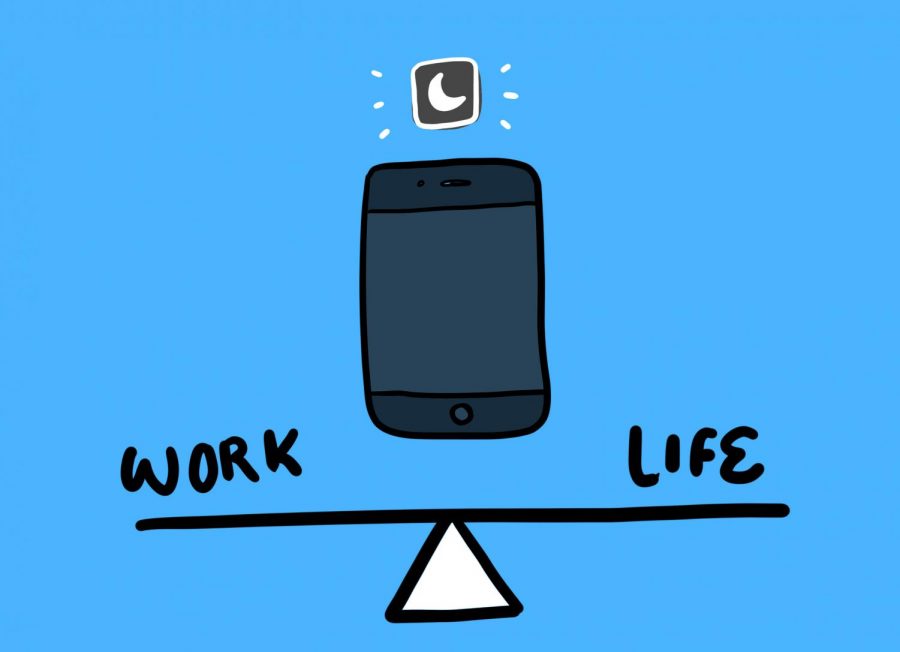NYC Councilman Wants You to Have a Right to Disconnect From Work
April 3, 2018
New York City Councilman Rafael Espinal introduced a “Right to Disconnect” bill on Thursday March 22 which would establish the rights of employees to stop answering work-related emails and texts from their employers during non-work hours.
“My main goal is to ensure that workers take control of their personal lives and are able to draw a line between their work hours and their personal hours,” Espinal said in a phone call with WSN. “There has to be a way that employees can feel they’re able to disconnect from work without fear of retaliation.”
To back up this new legislation, Espinal cites studies that say that giving workers the opportunity to disconnect and recharge will help productivity in the long run.
Wages have been stagnant while productivity expectations have gone up. Workers should have the right to be able to disconnect, if they choose to – great chatting w/ @Varneyco on the #righttodisconnect pic.twitter.com/cR1Cnb9roA
— Rafael L Espinal Jr. (@RLEspinal) March 28, 2018
CAS senior Gregory Tomy is among the many NYU students who balance a full time education with outside employment. Tomy used to work on campus at the Elmer Holmes Bobst Library. Now he interns at a broker-deal firm on Wall Street where he puts in 20 hours of work per week outside of class.
“I believe there should be something called work-life balance,” Tomy said. “It astonishes me that the question being put is why it’s bad for employers to contact you after work. My questions is why is it okay they [employers] can do that in the first place.”
Espinal said he got the idea from a similar law that was passed in 2017 in France.
“In New York City and in this country, the conversation is worth having,” Espinal said. “Especially where the wages have stayed stagnant and workers are expected to produce more [and] they’re not being compensated for being available 24 hours a day.”
Salo Coslovsky, an associate professor of Urban Planning and Public Service at NYU Wagner Graduate School of Public Service said that a little more regulation in this area is a good thing.
“It’s business acknowledging that we now all have these little computer in our pockets that allows for this kind of intrusion that didn’t exist before,” Coslovsky said. “And just because it was invented doesn’t mean that all the benefits should go to the employers. Having a law that regulates what’s reasonable and not reasonable is a good idea.”
Others disagree. French Labor lawyer Patrick Thiebart had was critical in an interview with NPR when the law came out in France last year.
“It’s so French to throw a law at every kind of problem,” Thiebart said. He argued that policy is not the right avenue to address the problem of burnout.
Still, Espinal stands by the utility of the bill he has proposed.
“The law clearly gives the employee protection if they feel that their employer is harassing or retaliating against them,” he said. “That alone will make an employer think twice when reaching out to employees in a way that’s threatening to their job.”
Some student employees like Tomy believe more can be done to reign in predatory employers.
“It’s labor extraction and only benefits them [the employers],” Tomy said.
The law also won’t prevent employees from responding to work emails and texts outside of work hours if they want to.
“There are a lot of people who enjoy working and don’t mind being continuously on the clock,” Espinal said. “What this will change is that if you decide that in that moment you don’t feel you want to be connected to your job or respond to a certain email that’s not urgent or an emergency then you don’t have to.”
Work life in France, where workers enjoy shorter hours and ample paid maternity leave, is miles apart from New York City, the city that never sleeps. It remains to be seen if this French-inspired bill to help New York City integrate this kind of work-life balance into its can’t-stop-won’t-stop work ethos.
Email Sunanda Gaskins at [email protected].
























































































































































